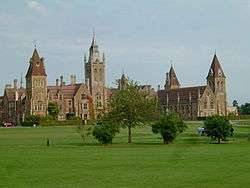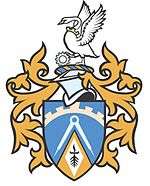John Wakeham
| The Right Honourable The Lord Wakeham PC DL | |
|---|---|
| Leader of the House of Lords Lord Privy Seal | |
|
In office 11 April 1992 – 20 July 1994 | |
| Prime Minister | John Major |
| Preceded by | The Lord Waddington |
| Succeeded by | Viscount Cranborne |
| Secretary of State for Energy | |
|
In office 24 July 1989 – 11 April 1992 | |
| Prime Minister |
Margaret Thatcher John Major |
| Preceded by | Cecil Parkinson |
| Succeeded by | Office abolished |
| Lord President of the Council | |
|
In office 10 January 1988 – 24 July 1989 | |
| Prime Minister | Margaret Thatcher |
| Preceded by | The Viscount Whitelaw |
| Succeeded by | Geoffrey Howe |
| Leader of the House of Commons | |
|
In office 13 June 1987 – 24 July 1989 | |
| Prime Minister | Margaret Thatcher |
| Preceded by | John Biffen |
| Succeeded by | Geoffrey Howe |
| Lord Privy Seal | |
|
In office 13 June 1987 – 10 January 1988 | |
| Prime Minister | Margaret Thatcher |
| Preceded by | John Biffen |
| Succeeded by | The Lord Belstead |
| Chief Whip of the Conservative Party Parliamentary Secretary to the Treasury | |
|
In office 9 June 1983 – 13 June 1987 | |
| Prime Minister | Margaret Thatcher |
| Preceded by | Michael Jopling |
| Succeeded by | David Waddington |
| Member of Parliament for South Colchester and Maldon | |
|
In office 9 June 1983 – 9 April 1992 | |
| Preceded by | Constituency created |
| Succeeded by | John Whittingdale |
| Member of Parliament for Maldon | |
|
In office 28 February 1974 – 9 June 1983 | |
| Preceded by | Brian Harrison |
| Succeeded by | Constituency Abolished |
| Personal details | |
| Born | 22 June 1932[1] |
| Political party | Conservative |
| Spouse(s) |
Roberta Wakeham (19??-1984; her death) Alison Ward (1985 - present) |
| Children | 3 |
| Alma mater | Christ Church, Oxford |
John Wakeham, Baron Wakeham, PC, DL (born 22 June 1932) is a British businessman and Conservative Party politician. Between 1998 and 2012, he was Chancellor of Brunel University, and since then has been its Chancellor Emeritus.[2]
He was a director of Enron from 1994[3] until its bankruptcy in 2001.[4]
Life and career
Wakeham was educated at two independent schools in Surrey: Aldro School in Shackleford, and Charterhouse School near Godalming, and later attended Christ Church, Oxford. He became a successful accountant and later a businessman. He stood unsuccessfully in Coventry East in 1966[5] and in Putney in 1970[5] before his election to the House of Commons at the February 1974 general election as the Member of Parliament (MP) for Maldon[5] in Essex. He became a minister after Margaret Thatcher's victory in 1979.
His first wife, Roberta, was killed in the Brighton hotel bombing in October 1984 and he was trapped in rubble for seven hours, suffering serious crush injuries to his legs. The couple had two children. Wakeham married his secretary, Alison Ward MBE in 1985[6] and they have a son of their own. Before being Wakeham's secretary, Ward had been Margaret Thatcher's secretary.
During the late 1980s he served as Leader of the House of Commons, in which capacity he was responsible for the televising of Parliament, and as Energy Secretary (1989–92), where he drew up plans for the privatisation of electricity supply. Following a recommendation by John Major, he was created a life peer on 24 April 1992 taking the title Baron Wakeham, of Maldon in the County of Essex,[7] serving as the Leader of the House of Lords until 1994.
He became chairman of the Press Complaints Commission in 1995, retiring in 2001. In 1997 he was appointed a Deputy Lieutenant of Hampshire. Tony Blair appointed him in 1999 to head a Royal Commission on reform of the House of Lords — the resulting Wakeham Report suggested a mainly-appointed Lords be maintained, with a small elected component.
Arms
|
References
- ↑ "Hansard 1803–2005: contributions in Parliament by John Wakeham". Retrieved 9 April 2016.
- ↑ "Chancellor". Brunel University.
- ↑ "Enron's board of directors". The Guardian. 30 January 2002.
- ↑ "UC reaches $168-million settlement with Enron directors in securities fraud case". University of California. Archived from the original on 24 July 2008.
- 1 2 3 Roth, Andrew; Kerbey, Janice; Tench, Judy (1984). Parliamentary Profiles S–Z. Parliamentary Profile Services. pp. 854–56. ISBN 0-900582-24-3.
- ↑ "John Wakeham: The watchdog now has to explain why he didn't bark". The Independent. 3 February 2002. Archived from the original on 16 January 2011.
- ↑ The London Gazette: no. 52907. p. 7461. 29 April 1992.
External links
- Hansard 1803–2005: contributions in Parliament by John Wakeham
- Appearances on C-SPAN
- Wakeham profile, apfn.org

.svg.png)
